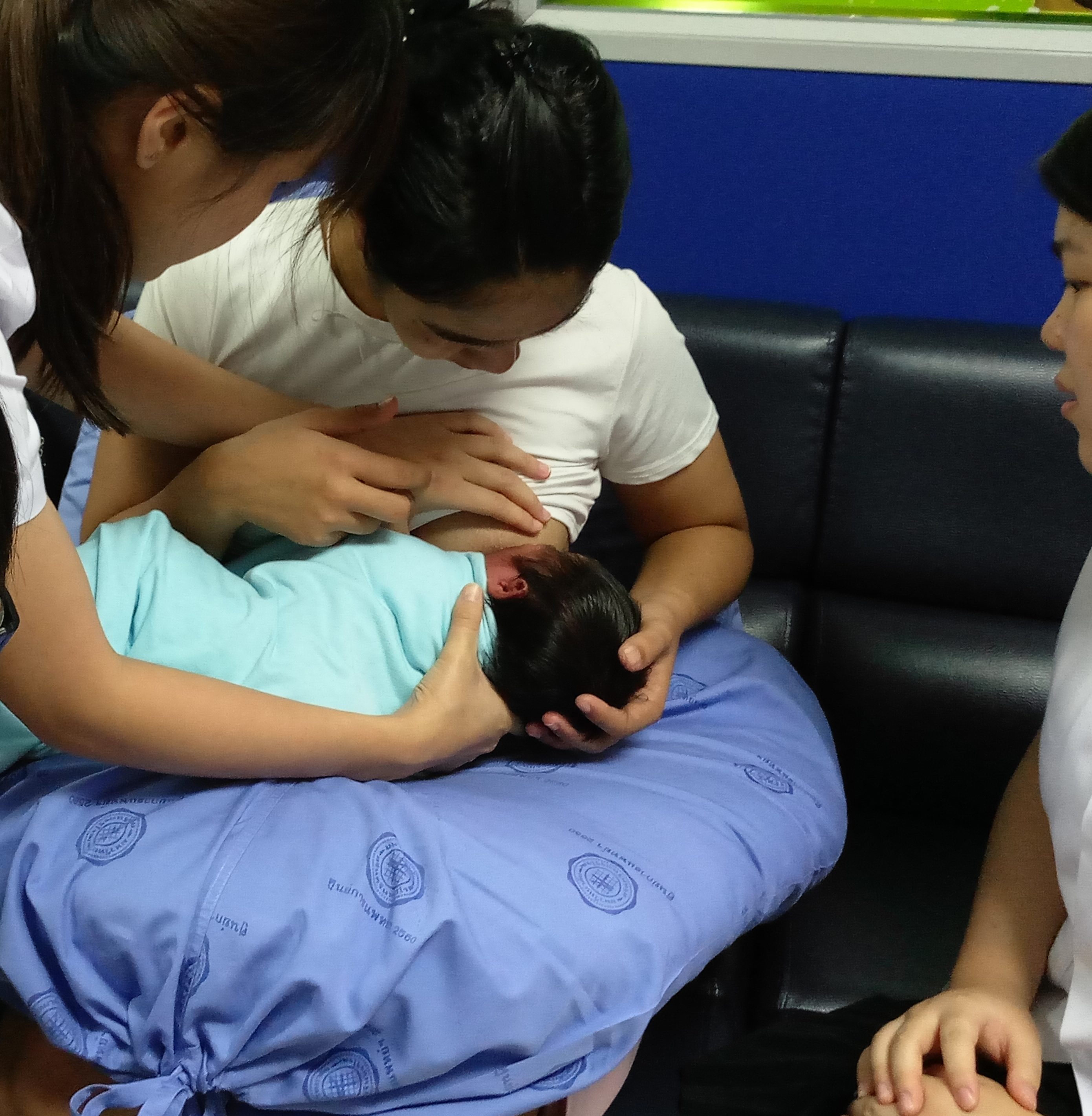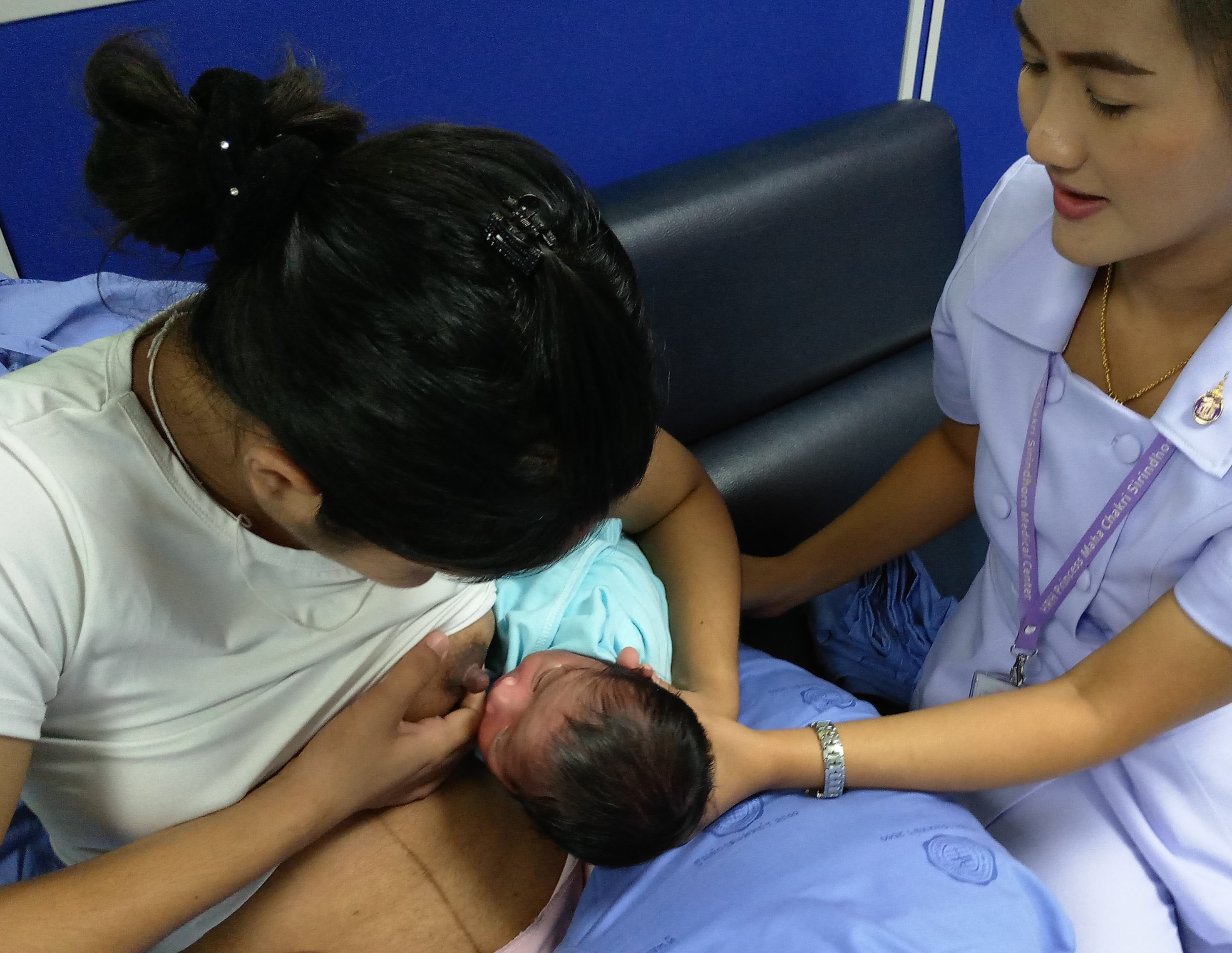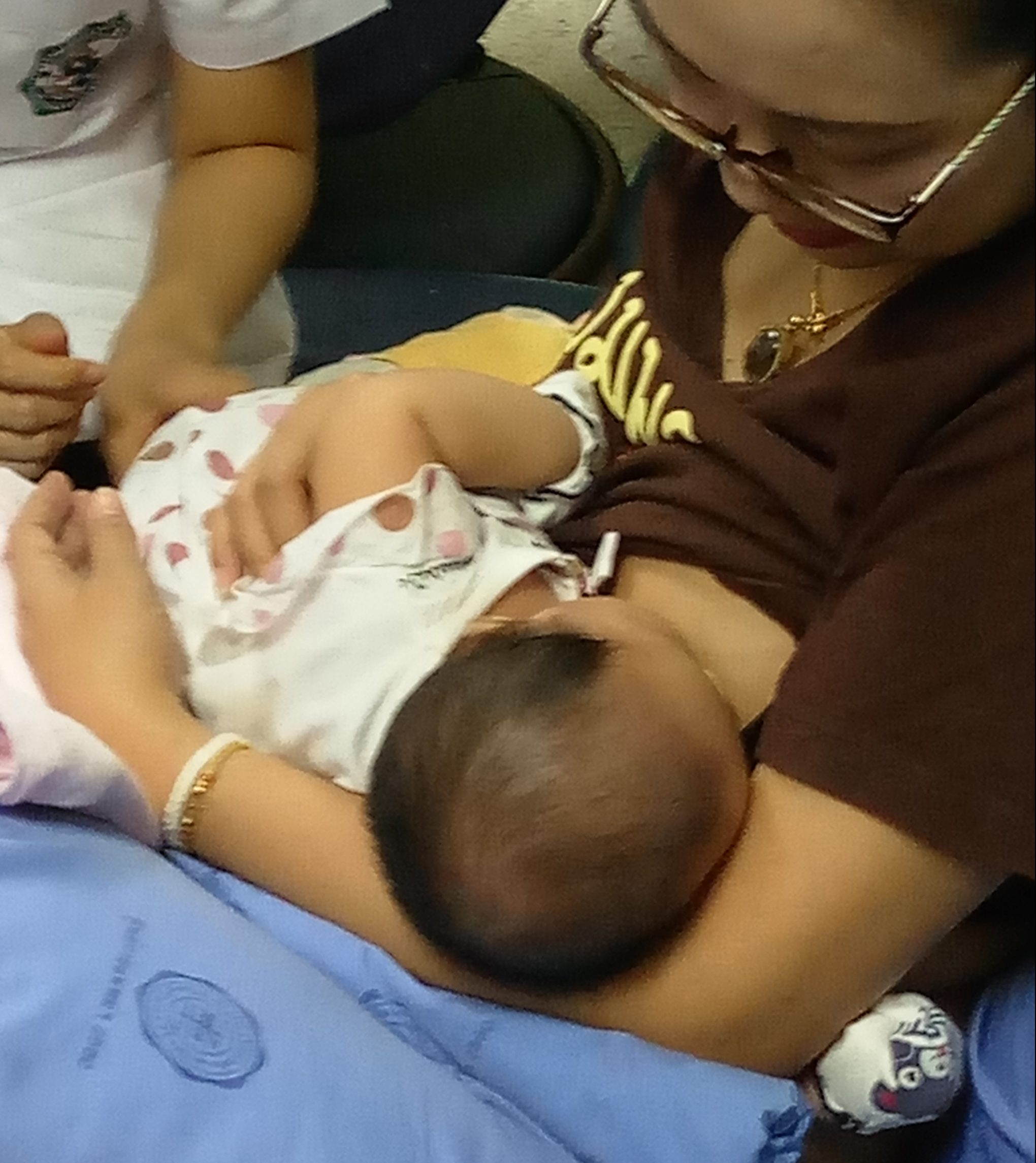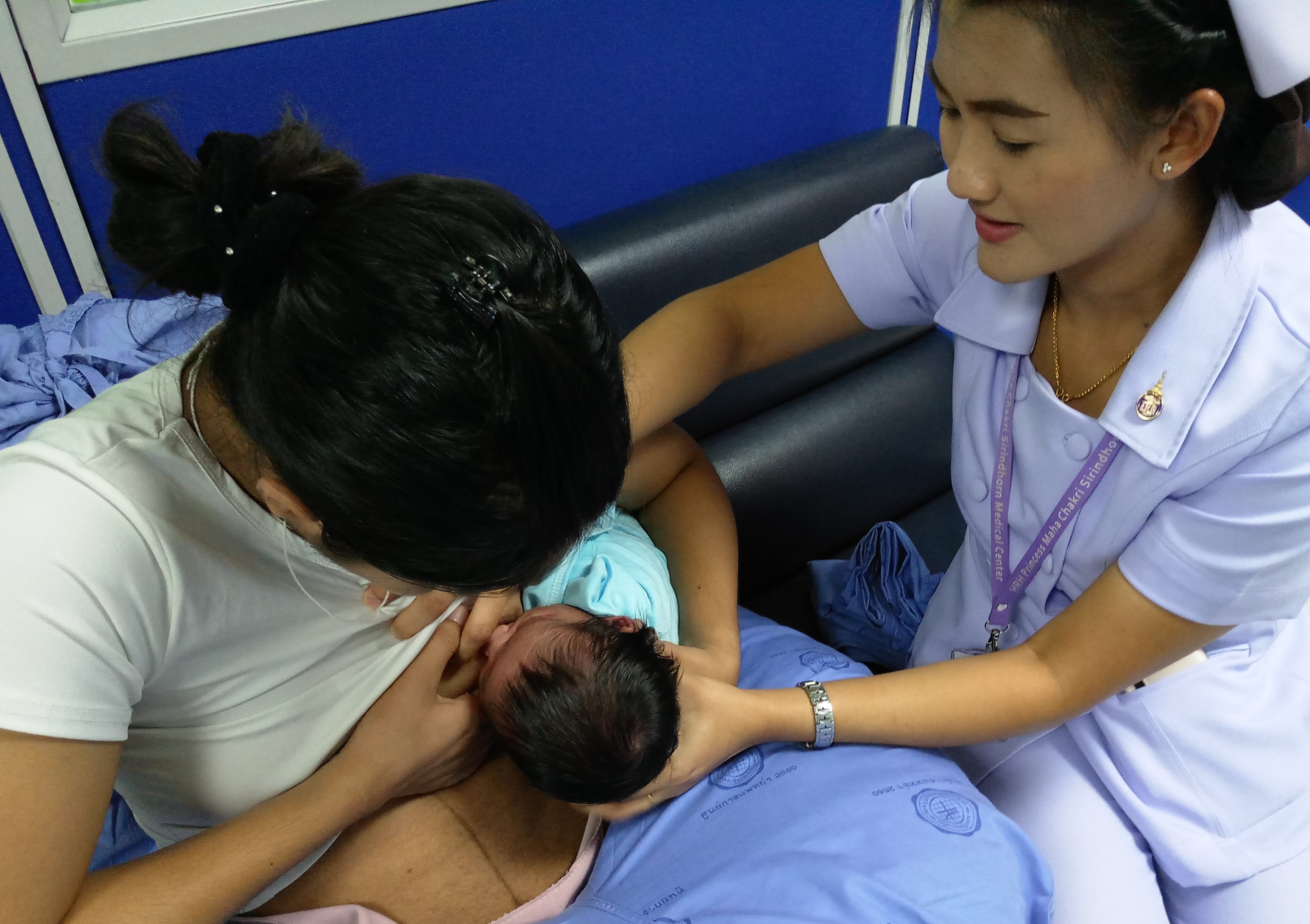รศ.นพ.ภาวิน พัวพรพงษ์
การที่มารดามีวิธีการคลอดอย่างไรนั้นมีผลต่อการเริ่มการเลี้ยงลูกด้วยนมแม่ การคลอดด้วยเครื่องดูดสุญญากาศและการผ่าตัดคลอดมีผลในทางลบต่อการเริ่มการเลี้ยงลูกด้วยนมแม่1-4 มารดาที่ผ่าตัดคลอดต้องการการช่วยเหลือในการจัดท่าให้นมลูกมากกว่ามารดาที่คลอดทางช่องคลอด5 และมารดาที่ผ่าตัดคลอดมักมีอาการปวดแผลมากกว่าซึ่งทำให้การให้นมแม่ได้น้อยกว่า 6 ครั้งใน 24 ชั่วโมงแรกและเริ่มการเลี้ยงลูกด้วยนมแม่ได้ช้า6 ซึ่งจะทำให้มีผลต่อระยะเวลาการเลี้ยงลูกด้วยนมแม่7,8 นอกจากนี้ยังพบว่ามารดาที่มีการผ่าตัดคลอดจะมีความเสี่ยงในการมีน้ำนมมาช้าเพิ่มขึ้นประมาณ 2 เท่า9 อย่างไรก็ตาม เมื่อสามารถเริ่มให้นมลูกได้แล้ววิธีการคลอดพบว่าไม่มีผลต่อระยะเวลาการเลี้ยงลูกด้วยนมแม่1,10,11
เอกสารอ้างอิง
1. Scott JA, Landers MC, Hughes RM, Binns CW. Factors associated with breastfeeding at discharge and duration of breastfeeding. J Paediatr Child Health 2001;37:254-61.
2. Hill PD, Johnson TS. Assessment of Breastfeeding and Infant Growth. Journal of Midwifery & Women’s Health 2007;52:571-8.
3. Perez-Rios N, Ramos-Valencia G, Ortiz AP. Cesarean delivery as a barrier for breastfeeding initiation: the Puerto Rican experience. J Hum Lact 2008;24:293-302.
4. Wu X, Gao X, Sha T, et al. Modifiable Individual Factors Associated with Breastfeeding: A Cohort Study in China. Int J Environ Res Public Health 2019;16.
5. Cakmak H, Kuguoglu S. Comparison of the breastfeeding patterns of mothers who delivered their babies per vagina and via cesarean section: an observational study using the LATCH breastfeeding charting system. Int J Nurs Stud 2007;44:1128-37.
6. Azzeh FS, Alazzeh AY, Hijazi HH, et al. Factors Associated with Not Breastfeeding and Delaying the Early Initiation of Breastfeeding in Mecca Region, Saudi Arabia. Children (Basel) 2018;5.
7. Woods AB, Crist B, Kowalewski S, Carroll J, Warren J, Robertson J. A cross-sectional analysis of the effect of patient-controlled epidural analgesia versus patient controlled analgesia on postcesarean pain and breastfeeding. J Obstet Gynecol Neonatal Nurs 2012;41:339-46.
8. Chen C, Yan Y, Gao X, et al. Effects of Cesarean Delivery on Breastfeeding Practices and Duration: A Prospective Cohort Study. J Hum Lact 2018:890334417741434.
9. Scott JA, Binns CW, Oddy WH. Predictors of delayed onset of lactation. Matern Child Nutr 2007;3:186-93.
10. Dennis CL. Breastfeeding initiation and duration: a 1990-2000 literature review. J Obstet Gynecol Neonatal Nurs 2002;31:12-32.
11. Cernadas JM, Noceda G, Barrera L, Martinez AM, Garsd A. Maternal and perinatal factors influencing the duration of exclusive breastfeeding during the first 6 months of life. J Hum Lact 2003;19:136-44.





